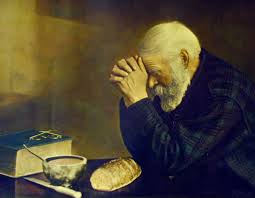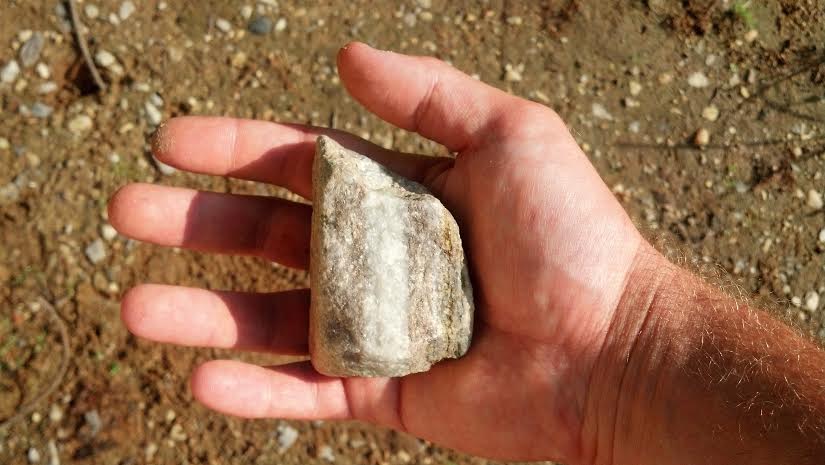How many times have we said the Lord ’s Prayer since we were children? But have you ever thought about what its words actually mean? Let’s break it down so that we are able to say it sincerely and know what it is that we are praying.
The Lord’s Prayer was given to us by Jesus during what we call the Sermon on the Mount, which took place on the Mount of Olives in Jerusalem, and is written to us in Matthew 5-7.
(Mat 6:5-8) And when thou prayest, thou shalt not be as the hypocrites are: for they love to pray standing in the synagogues and in the corners of the streets, that they may be seen of men. Verily I say unto you, They have their reward. But thou, when thou prayest, enter into thy closet, and when thou hast shut thy door, pray to thy Father which is in secret; and thy Father which seeth in secret shall reward thee openly. But when ye pray, use not vain repetitions, as the heathen do: for they think that they shall be heard for their much speaking. Be not ye therefore like unto them: for your Father knoweth what things ye have need of, before ye ask him.
From the start, Jesus is telling us not to show off when we pray. We aren’t to pray to God to give ourselves glory, or convince people of how pious we think we are. It is good to pray with fellow Christians, but it is even more intimate and personal when we pray to our Father privately, when it is just between us and Him. We are to truly think about and feel what we are saying, and not say empty vain words, that don’t mean anything to us. The simpler the better, because using many words causes our prayers to lose their meanings, because we are thinking more about the flowery language we want to use, rather than just being plain and direct with our Father, who is unimpressed by our high levels of education. He already knows what we need and is really just looking for us to be genuine and honest with Him. KISS—Keep It Simple S…and Solitary.
(Mat 6:9) After this manner therefore pray ye: Our Father which art in heaven, Hallowed be thy name.
This is how Jesus is telling us to pray to our Father—yes to our Father—and give Him all the glory. Even Jesus prayed to the Father, not to Jesus. He is telling us who to pray to. Although Jesus is a form of God, the form that He fills, the Son, is a different office or role of God, and you are to pray to the office of the Father, in the name of the Son, Jesus Christ. Praying in the name of Jesus Christ, or in the name of the Father, the Son and the Holy Spirit, shows our credentials as Christians.
The Trinity, or Godhead (as it is called in the Bible), is God, but He has three forms that He takes depending on the situation, and He always is in all three forms simultaneously. For example, take H2O: H2O can take the form of ice, water and steam, and it can take all three forms at the same time, in different places. They are all H2O, and they can even change from one form to another in any given place, but all three have their own unique properties. The same is true with the Godhead. The Father, the Son, and the Holy Spirit are all God, and God is one, as there is only one true God, but God is such that He can be anywhere and everywhere at the same time, and perform different roles and take different forms depending on the situation.
Wherever God is in His full Glory is Heaven. This is where the full Godhead resides. At this time, Heaven exists in a higher dimensional plane than that which we currently occupy, which is why flesh cannot inherit the Kingdom of Heaven. It simply isn’t possible for us to enter into that dimension of Heaven the way we are, physical, 3-dimensional beings. But this is where God is and it is more real than anything we can know while in these flesh bodies. Occasionally, God will take one of His children there, in the spirit, to give us a vision or a glimpse into the future for a particular reason to serve His purpose, and this is illustrated in the Bible at various time, such as when John was taken in the spirit (for the book of Revelation), but this can only happen when one is in the spirit and leaves his flesh behind.
The name of God, YHVH, pronounced Yahaveh, is a very holy name that we see throughout the Old Testament in the Hebrew script; however, when translated to English, His name is generally rendered as “LORD,” in most translations. This name is so sacred, that it should not be used lightly—it is hallowed, or holy, meaning that it so pure that it is to be set apart. We are to have the kind of relationship with our Father that we are told to have with our own parents, except in much more reverence. Would we ever address our own parents by their first names? Occasionally we see that, but it is unusual and generally shows a lack of respect to them. We call them father or mother, or something similar. The same goes for our Father in Heaven. I would not recommend that you address our Father by His name Yahaveh, as Jesus also did not address our Father as Yahaveh. Jesus is our example of how to be a good Chrsitian. The only time we should use His name is when we are speaking of Him on a third person level and when we have a good reason, in my humble opinion. Will you be punished for it if you do? I don’t think so, and God is the only one who truly knows your heart. To me this is just a good measure to avoid using His name in vain, as we are told not to do. When we use His name, we should not take it lightly.
(Mat 6:10) Thy kingdom come. Thy will be done in earth, as it is in heaven.
God’s Kingdom of Heaven is with Him. It is wherever He is. The whole universe is His, but on the Lord’s Day, immediately following the tribulation, is the Second Coming, and Jesus will be returning, and His Millennial, thousand-year, Kingdom will be coming with Him, from which He will rule on earth. God will be here on earth in the form of the Son at that time, but after the Millennium, the Eternal Kingdom of Heaven will resume, in which God will be on earth in His full Glory. We are not going anywhere to experience the Kingdom of Heaven—it is coming to us. His Kingdom will come!
And His will will be done in His Kingdom on earth, just as it is in Heaven. There will not be any more rebellion or selfishness, we will all live in harmony and peace, which is His will.
(Mat 6:11) Give us this day our daily bread.
This line, as with all scripture, has more than one significance. Of course, it is asking for our Father to continue to provide us our nourishment physically, in the form of food to keep our bodies healthy. But, more deeply, this is asking Him to provide deeper, more meaningful understanding of His scriptures. His Word, is represented by bread throughout the Bible. Don’t we want to understand His Word more clearly and deeply? This is the reason we continually study His Word. Is it not? We should always be learning from it, as no one has complete understanding of the Bible—not until we understand each and every verse on all three levels to which they are written. And no one will ever have that perfect understanding while in the flesh.
(Mat 6:12) And forgive us our debts, as we forgive our debtors.
This step is a very important one in every prayer we say, and we will find out a little more just after the prayer. But in order for God to forgive us of our sins and blot them out, we must also be willing and able to do the same for those who sin against us as we have against Him.
He will forgive us of all our sins if we do this and we ask for forgiveness in the name of our Savior, Jesus Christ. But we must first truly and sincerely accept Him as our Lord and Savior.
(Mat 6:13) And lead us not into temptation, but deliver us from evil: For thine is the kingdom, and the power, and the glory, for ever. Amen.
It is also a good idea to ask God to protect us from and lead us away from the temptations that cause us to want to go against Him and sin, as well as to keep us away those who would tempt us to sin, and those who would cause us harm. God knows what we need and He knows our hearts and how we don’t want to stray from Him, but He still likes a dialogue with us because that is why He created us, to keep Him company and to please Him. He likes us to ask Him for help to stay on His proper course, and He will help us if we sincerely ask Him.
His power and His glory will always exist and it will always be supreme, and this Kingdom will always be His. There is no power or glory that will surpass His and this will stand forever. We have read the book and we know how it ends. Satan loses and will ultimately perish in the Lake of Fire, along with all those who are not listed in the Book of Life. There is nothing for which to be afraid, as we are told to fear, or revere, not he who has the power to destroy our flesh, but He who has the power to destroy our soul. The kingdom is His and all we have to do is to sincerely seek His help to stay on the right track to enter into it.
(Mat 6:14-15) For if ye forgive men their trespasses, your heavenly Father will also forgive you: But if ye forgive not men their trespasses, neither will your Father forgive your trespasses.
Jesus is emphasizing here just how important it is to forgive those who sin against, so that our Father will see that we are worthy of being forgiven for our own sins against Him. Jesus, at another spot, gave us the Parable of the King and His Indebted Servant, Matthew 18:22-35. This parable perfectly illustrates the attitude we are taught to have toward those who would sin against us or owe us any debt.
Many people have difficulty with this step, but it is an essential one, and I urge you to begin its practice as soon as possible if you would like God’s blessings in your life.
Jesus gave us this outline for a proper and effective prayer to our Father, but we don’t have to say it word-for-word. However we choose to pray to our Father, it is imperative that we are very sincere, honest, humble, and truly feel what we are saying to Him, otherwise these are all just vain babblings, and have no meaning at all, and are like smoke in His nose. Sincerely approach our Father’s throne—He is our heavenly Father, and is to be revered more than anyone on earth.
God bless.








